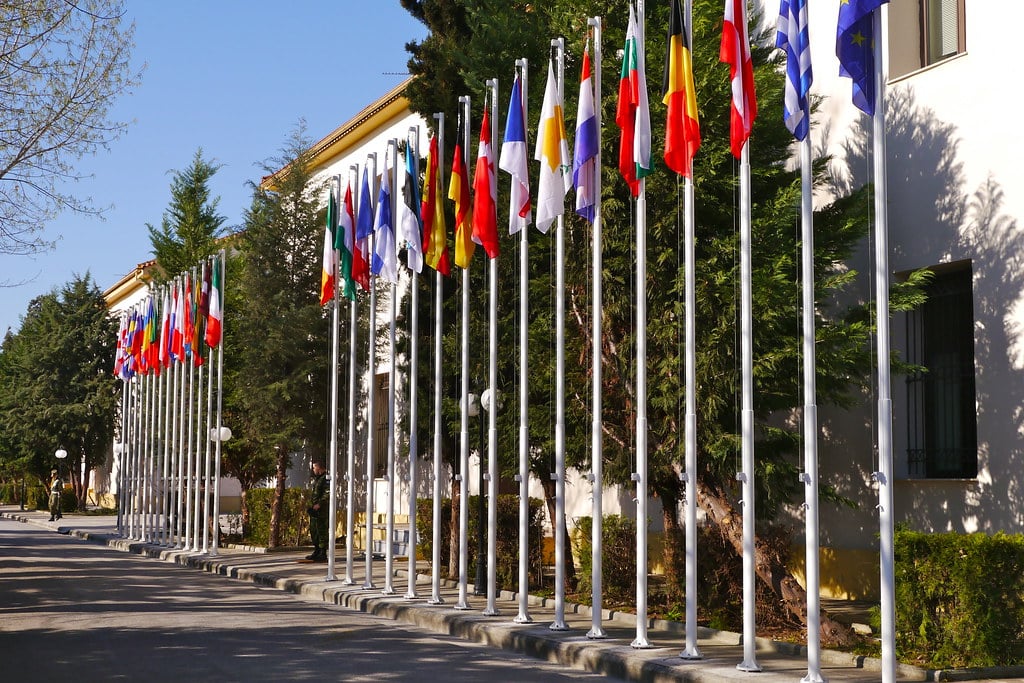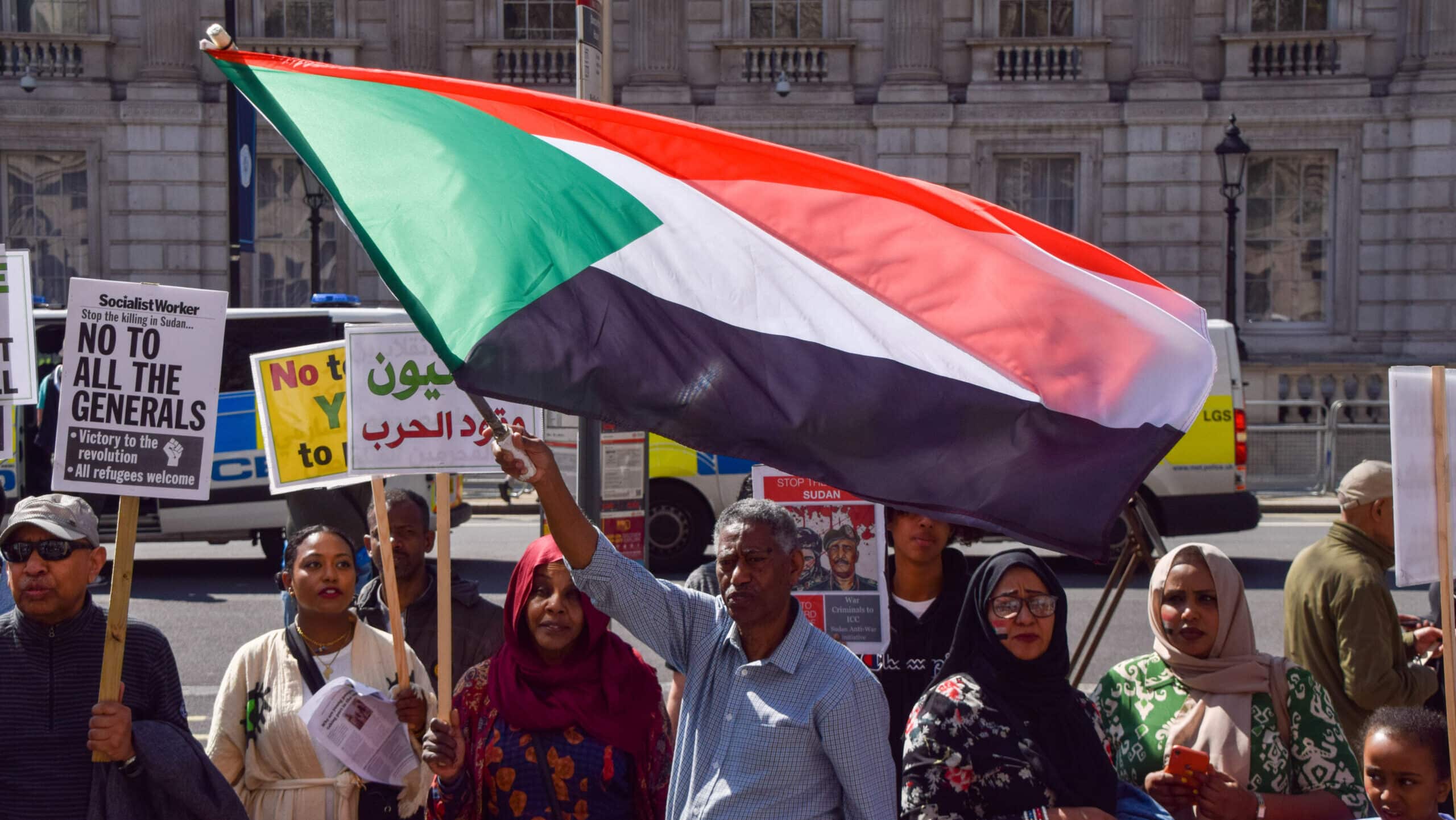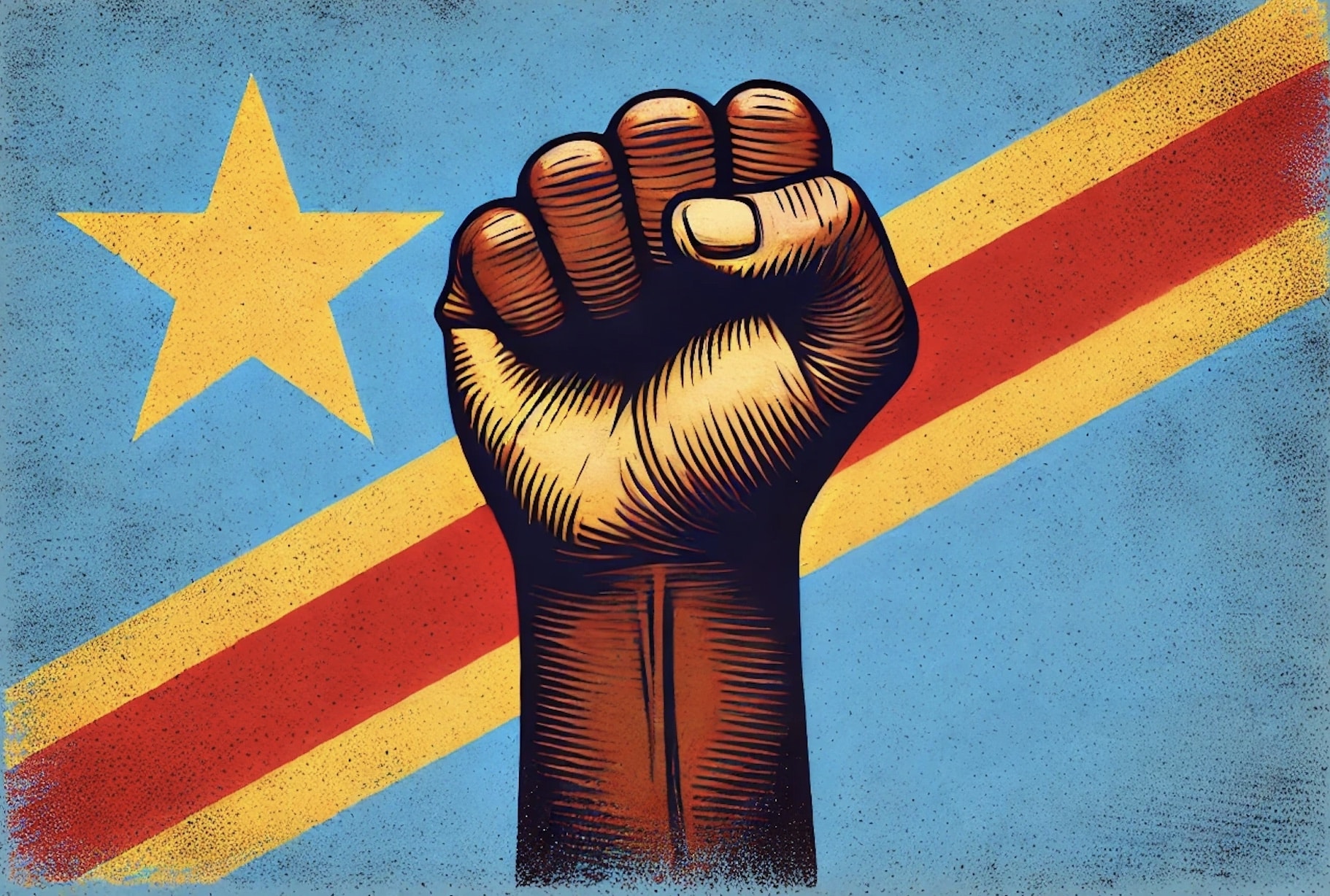"For us, Africa is an equal partner in terms of efforts, aspirations and dreams to fight inequality, so our actions must reflect this reality,'' said the Socialist & Democrats Group (S&D Group). In keeping with this thinking, Africaweek was organised last week, spread over three days. Through several panels that could be followed online, several important topics were discussed. These included the future of African infrastructure, women's empowerment, youth engagement in democracies, the climate crisis in both the EU and Africa and, above all, EU-Africa cooperation. The latter three were also followed by FMS.
Listening to the voice of youth
While more than 70% of Africa's population is under 35, leadership of African countries today is still mostly in the hands of older generations. This shows that a significant portion of the population is thus not represented in governance and not involved in decision-making. Following this issue, the panel 'Bridging the Generation Gap - Advancing Democracy for Inlcusive & Sustainable Governance between Africa and Europe' organised.
Eric Andrieu, member of the S&D Environment Committee, argues that there are too few channels through which young people can make their voices heard, something he says is a problem in both Europe and Africa. To change this, he suggests creating specific forums for young people. However, Bobi Wine, opposition leader and activist in Uganda, argues that while there are decent young people in Africa who are raising their voices, they are ignored and regularly even brutally suppressed by the current administrators. Khensani Motileni, social justice activist and lawyer, echoes this. She explains that nowadays, many young people do not even bother to vote because they know they will not be listened to anyway.
According to Bobbi Wine, little will change as long as leaders remain in place with an old-fashioned mindset. The world needs to pay close attention and listen to those who raise their voices, and then act accordingly. Wine believes that with such a development, Africa could fulfil its full potential.
The climate crisis on the African continent
The climate crisis is a global issue; the problems caused by emissions activities are not confined to one place, it has consequences all over the world. And unfortunately, these impacts tend to be disproportionate. Although Africa is the continent that emits the least greenhouse gases, it is experiencing huge impacts from the climate crisis (as can also be read in the most recent FMS publication Climate justice: African perspectives & EU policies). Extreme weather events are increasing, both desiccations and floods are occurring, and land-based food production is being destroyed with regularity. The panel 'Climate Emergency - EU & Africa - Promoting Green Innovation for People and Nature' addressed this issue.
Robert Muthami, a member of the COP Delegation 2021, and Frederik Kumah, Vice-President of the Africa Wild Life Foundation, emphasise that in combating the climate crisis, the potentials that Africa offers must be carefully considered. In realising green innovations, it is important to realise that Africa can be part of the solution; it has vast resources of wind, water and sun, and all three offer the potential for clean energy. Also, Muthami and Kumah argue that the focus is too much on adaptation, much more should shift to mitigation and - even less named as a possible solution - biodiversity conservation. Frederik Kumah explains that with 10% of the world's biodiversity, Africa could act as a huge carbon sink.
Such solutions do require a good funding package from the EU, agrees Leia Achampong, Senior Policy and Advocacy Officer on Climate Finance at Eurodad. Not only should this funding be increased, its actual distribution also needs to be better monitored. Gabriel Giuglietti, president of CRESUD, explains that much of the money should go to agriculture, which accounts for 18% of GDP in the sub-Saharan region. However, only 1% of the money ends up here. Achampong also maps that women of indigenous communities are mostly left out of such aid packages, even though they can contribute to combating climate issues. All in all, therefore, there needs to be more funding and this process needs to be more democratic to bring about the desired impacts.
Towards EU-Africa summit
The panel 'EU-Africa: Interrogating the Disparities of Partnership towards a Post-Pandemic Era' opened with a speech by Pedro Marques, S&D vice-president. He explained that in a globalised world, conflicts and instability cross borders; what happens in Africa will also affect Europe. Stable and good governments are therefore essential for the overall security of Africa and Europe. Cooperation and supporting each other is crucial.
But according to Dr Olantunbosun-Alakija, co-chairman of the African Union's Vaccines Delivering Alliance, such cooperation fell seriously short during the covid pandemic. The global health crisis has challenged and shaken existing alliances, creating a geopolitical crisis as well. She stresses that the pandemic is not over as long as the virus is still roaming widely on other continents. 'Perplexing', she calls it, that European leaders do not seem to realise this sufficiently. Other guests on the panel, including Mr Marques and Richard Kozul-Wright, leader of the UN's Globalisation and Development Strategies, also see the seriousness of this situation. To further substantiate this, they point to vaccination rates; where in many European countries the desired 70% vaccination rate has been achieved, in Africa just 11% of the entire population has been fully vaccinated.
Moreover, Marques argues, an incredible number of additional people have fallen into poverty because of this crisis. This has created even more instability on the continent and a series of coups have now been observed. This again goes to show that because of the cohesive world today, this situation will also bear its fruit on Europe, if adequate action is not taken.
Guests raise that such issues should be discussed at the upcoming EU-Africa summit in Brussels. The EU should be much bolder and more ambitious in its rethinking of this partnership. Moreover, according to Udo Bullman, coordinator of S&D Africaweek, the EU should recognise that Africa is an incredibly rich continent; a huge and young population is eager to be able to contribute to the development of their countries. ''If the EU does not step up, others will fill the gap''.





